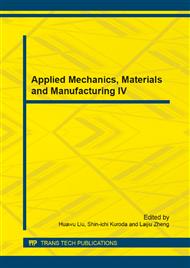p.1358
p.1362
p.1366
p.1370
p.1378
p.1385
p.1389
p.1393
p.1397
A Nonlinear PID Controller with a Tracking Differentiator in the High Precision Servo System
Abstract:
Classical linear PID controllers have such disadvantages as the derivative signal unable to be used owing to the noise amplification effect, and the contradiction between the more swiftness and less overshoot. We develop a practical nonlinear PID controller based on a tracking differentiator (TD) in the high precision servo system of the three-axis flight simulator, which could eliminate above disadvantages. The nonlinear PID controller adopts the tracking differentiator to arrange the response process and produce the ideal derivative signal of the reference signal. We use a nonlinear combination function of the error proportional, integral and derivative item in the PID controller. The simulation results in Matlab Simulink demonstrate that the nonlinear PID controller makes the flight simulator servo system with the friction disturbance realize the higher position tracking precision and velocity tracking precision. The nonlinear PID controller with the TD is superior to the classical PID one in control performance.
Info:
Periodical:
Pages:
1378-1384
Citation:
Online since:
October 2014
Authors:
Price:
Сopyright:
© 2014 Trans Tech Publications Ltd. All Rights Reserved
Share:
Citation:


